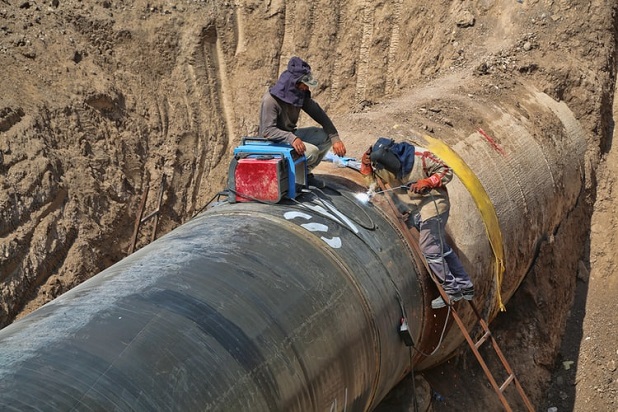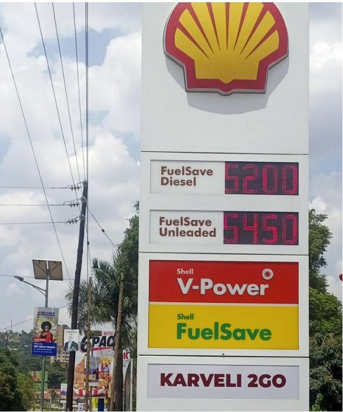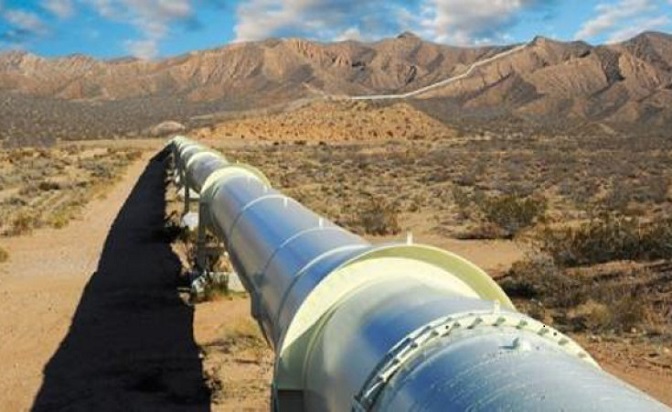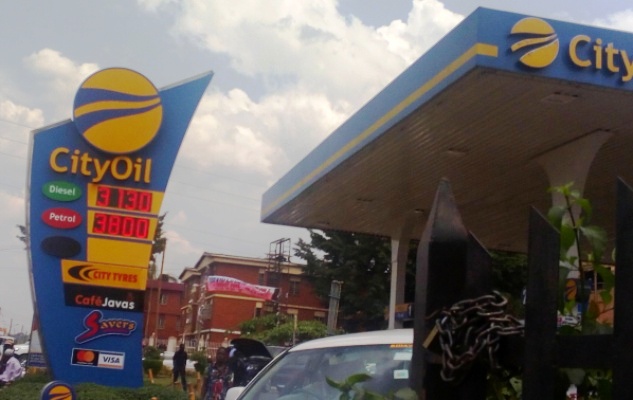The Islamic Development Bank has announced US 100 million in funding for the construction of the East African Crude Oil Pipeline (EACOP).
The funding announced by the Bank on Saturday is part of the bigger 395-million-dollar funding, with the other 295 million meant for the construction and maintenance of roads in the country.
Announcing the funding to EACOP, the Board of Executive Directors said the bank was ready to help in funding the project due to the importance of the oil and gas industry to the economy of Uganda.
“The discovery of oil in Uganda gives the country a unique chance to transform its economy by improving infrastructure and reducing poverty. We are proud to support the government with USD 100 million in financing for the East Africa Crude Oil Pipeline Project to help export its oil,” the board said in their statement.
EACOP is a 1,443km crude oil export pipeline that will transport Uganda’s crude oil from Kabaale – Hoima in Uganda to the Chongoleani peninsula near Tanga port in Tanzania. It will have a peak capacity of 246,000 bbls/day.
It is hoped that the construction of the EACOP Pipeline in combination with the Tilenga and Kingfisher projects will benefit the economies of Uganda and Tanzania.
The two countries are projected to realize their record level of foreign direct investment flows to the tune of $3.5 billion over the period from 2022 to 2025, which is an increase of over 60% compared to the current levels of foreign direct investment flows,
In early February this year, TotalEnergies and CNOOC announced a Final Investment Decision (FID) for the $10-billion Uganda and Tanzania project. Construction of the pipeline is expected to cost about 3.5 billion dollars.
The project has faced a lot of resistance from local and international civil society organizations which claim that the pipeline and the oil and gas industry as a whole, pose a high risk to the rich ecosystem and the livelihoods of the people close to the project areas.
The NGOs have approached several financial institutions to try to convince them to stay away from the project that has also been condemned by a group of Roman Catholic Church bishops in Africa.
They have also sought the support of the Pope as well as the president of France, the home country of TotalEnergies which is leading the investment in the industry in Uganda.
“The project will enable Uganda, a landlocked country, to emerge as a regional oil producer with export capacity to international markets. The objective of the project is to enable Uganda to exploit its oil reserves and export oil to international markets,” says the Saudi Arabian-based lender.
Peter Muliisa, the Chief Legal and Corporate Affairs Officer at UNOC says this is project financing, meaning that EACOP will start paying back when it starts getting revenues.
The EACOP financing structure provides for 60 percent project financing, while the component for equity financing (funds from shareholders) is 40 percent.
Muliisa says that currently the main activity is the land acquisition in preparation for civil works next year.
“We should start construction next year. Right now we are concluding land acquisition. We have paid PAPs around 66 percent. The plan is to complete acquisition later this year so that construction starts next year,’ says Muliisa.
On drilling, Muliisa says the two oil companies are ready to start drilling in December this year, and that the 2025 production deadline still stands.
“For kingfisher, we are starting drilling in December, the rig was sent. For Tilenga, the first rig is on the way. So for both we expect drilling to start in December,” he says.
TOtalEnergies and Chinese oil giant CNOOC are leading the development of the oil and gas industry, alongside Uganda National Oil Company, UNOC, which represents government interests, and the Tanzania Petroleum Development Corporation representing Tanzania in the EACOP project.
South Africa’s Standard Bank, through its Ugandan subsidiary Stanbic Uganda, together with the Industrial and Commercial Bank of China (ICBC) and Sumitomo Mitsui Bank (SMBC), are the financial advisors to the project.
The companies and the Uganda government have reiterated that the project will go on despite resistance from the civil society, whom they accuse of leading a campaign based on lack of information on the project.
The companies agree that the projects, especially the upstream where there is exploration, drilling and processing, are situated in some of the world’s richest ecosystems requiring utmost care, but that they are up to the task.
“Environmental and social impact assessments (ESIAs) have been carried out in compliance with the exacting standards of the International Finance Corporation (IFC).
Third-party reviews have also been conducted to ensure that the projects are compliant with the best social and environmental practices,” says TotalEnergies.
The company says 70,000 people were consulted for the ESIAs, while discussions have been initiated with several NGOs, laying the foundation for a sustainable collaboration process aimed at capitalizing on their expertise and driving continuous improvement.
“Tilenga and EACOP are a concrete examples of the application of the Company’s ambition and commitments to biodiversity. Significant resources have been mobilized to implement them in an exemplary way,” says Nicolas Terraz Vice President TotalEnergies E&P Africa in a statement posted to their website.
In July, the East African Crude Oil Pipeline Company (EACOP) Ltd, the firm spearheading the development of Uganda’s crude oil export pipeline, applied for a construction license for the 1,443 kilometre underground heated pipeline.
-URN





